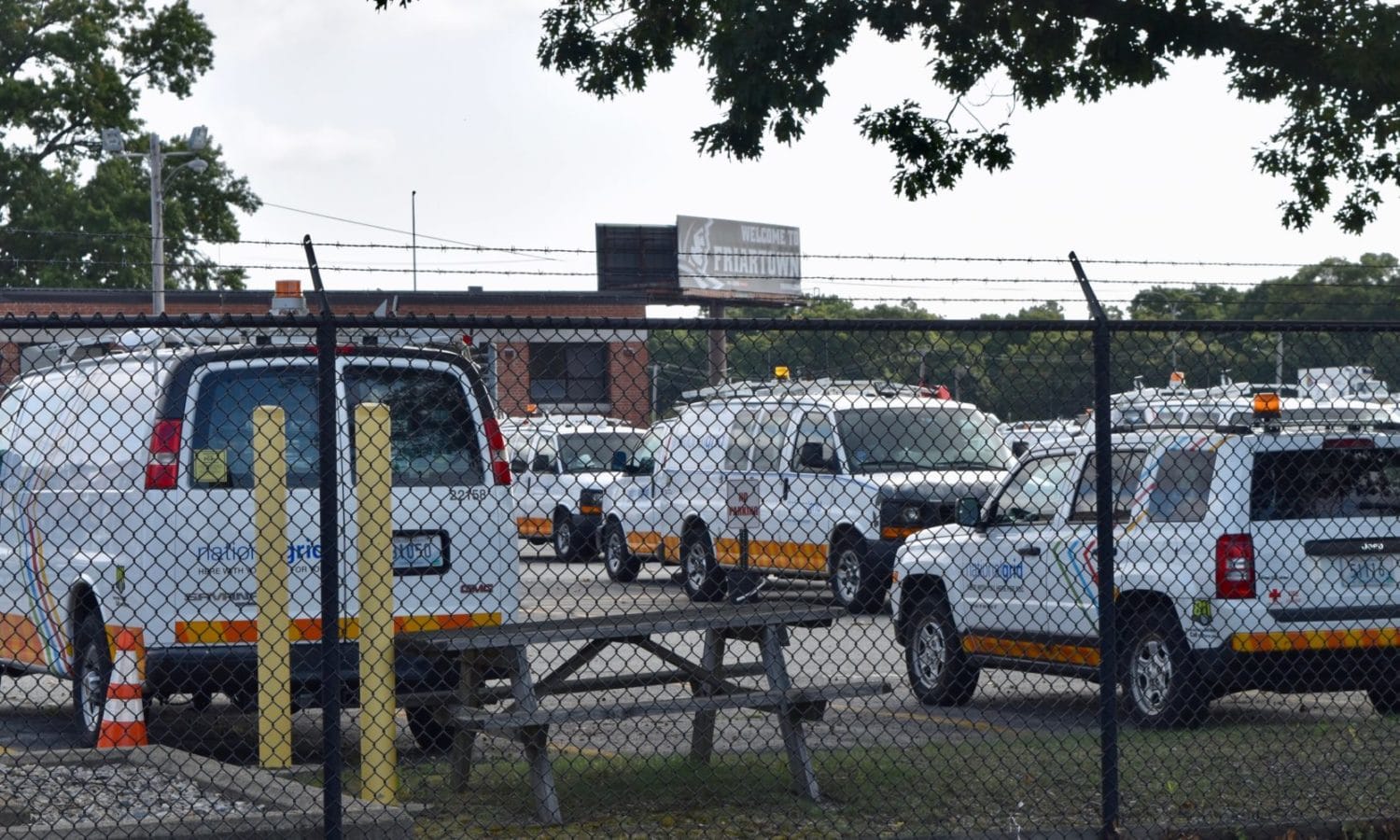DPUC report on Aquidneck Island gas outage recommends unneeded gas pipelines putting ratepayers on the hook
“Should we be doubling down on gas infrastructure?” asks Senator Dawn Euer. “Or should we use this opportunity to push forward on renewable technologies that are more cost-effective and don’t contribute to climate change?” Yesterday the Rhode Island Division of Public Utilities and Carriers (DPUC) released the results of a months long investigation into a week long shut down of
October 31, 2019, 8:58 am
By Steve Ahlquist
“Should we be doubling down on gas infrastructure?” asks Senator Dawn Euer. “Or should we use this opportunity to push forward on renewable technologies that are more cost-effective and don’t contribute to climate change?”
Yesterday the Rhode Island Division of Public Utilities and Carriers (DPUC) released the results of a months long investigation into a week long shut down of gas service to Newport and Middletown on Aquidneck Island following a “low-pressure” event. The shut down, determined DPUC, was the result of three factors:
- Demand for natural gas was in excess of contractual limits by many of Algonquin’s customers along the Algonquin G-System, driven by sudden low temperatures;
- The uninterruptible power system at the liquified natural gas storage and vaporization facility at Fields Point in Providence, owned and operated by National Grid LNG, failed, shutting down the vaporizers and causing a sudden and very large increase in demand for gas from the Algonquin pipeline into the Providence area; demand that would otherwise have been met by vaporized LNG from the Fields Point facility;
- A valve located on the Algonquin pipeline at a meter station in Weymouth, Massachusetts operated by Enbridge malfunctioned. The malfunction stemmed from a programming error that caused the valve to repeatedly open and close restricting the flow of gas when the system operators attempted to inject more into the Algonquin pipeline that feeds gas into the G-System.
The report is clear: “Had Algonquin programmed its valve in Weymouth correctly, modeling shows that the inlet pressures at Portsmouth would have been sustained at levels that would not have necessitated a curtailment… Had National Grid LNG taken steps to address the faulty uninterruptible power supply, modeling shows that the inlet pressures at Portsmouth would have been sustained at levels that would not have necessitated a curtailment.”
Nowhere in the report is their any indication that Aquidneck Island does not have access to adequate supplies of natural gas. In fact, on page 156 of the appendix to the report, in a letter from Terrence Sobolewski, Chief Customer Officer and National Grid, to Kevin Lynch, Deputy Administrator RI DPUC, Sobolewski says, “First, this will confirm that National Grid has sufficient pipeline capacity in its portfolio to meet the Company’s load requirements for Aquidneck Island this winter.”
Why then, nestled among the recommendations from DPUC to avoid future outages of his kind, is there a call for more expanding gas pipeline capacity by a factor of five?
Item number three (Page 68 of the report) reads: “Evaluation of Reinforcing the Lateral Serving the Portsmouth Take Station: Aquidneck Island is served by only one take station at Portsmouth, which, in turn,is served by a single six-inch lateral pipeline. However, the Algonquin G-System leading up to the lateral has both twelve-inch and six-inch pipes. Narragansett Electric should engage with Enbridge to determine the feasibility of reinforcing service into Portsmouth by having Algonquin add a twelve-inch pipe in parallel with the existing six-inch pipe.”
Gas pipelines, and the compressor stations that power them, are extraordinarily expensive. For proposed onshore United States gas pipeline projects in 2015-2016, “the average cost was $7.65M per mile.” The cost of pipeline construction could be much higher today, so we are talking about a project that will potentially cost hundreds of millions of dollars, costs that will be born by ratepayers, not to mention that five times the pipeline capacity is five times the amount of potential gas leaks.
Natural gas is methane, a potent greenhouse gas. Methane leaks are impossible to avoid, and their damage to the environment and contribution to climate change is only recently being understood.
State Senator Dawn Euer (Democrat, District 13, Newport, Jamestown), who represents a good portion of Aquidneck Island, is aware of this. In her press release following the release of the DPUC report, she writes, “it’s… important that this outage is not used to push for additional interstate pipelines,” adding, “We need to also reflect on the bigger policy questions: Should we be doubling down on gas infrastructure? Or should we use this opportunity to push forward on renewable technologies that are more cost-effective and don’t contribute to climate change?”

UpriseRI is entirely supported by donations and advertising. Every little bit helps:
Become a Patron!






